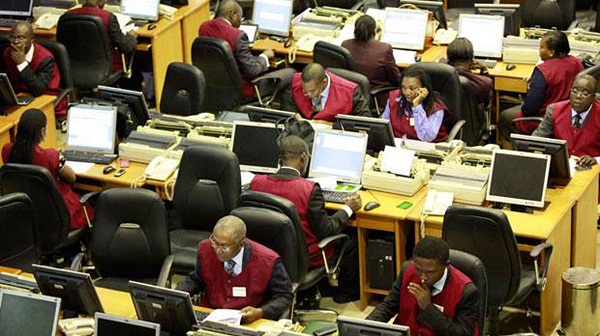Equity investors faced a setback on Thursday as the Nigerian Exchange slipped back into the red zone.
Sell-offs across various sectors, including banking, insurance, and consumer goods, contributed to a 0.12 per cent decline in the All-Share Index, which closed at 101,239.10 points. The market capitalization, mirroring the same rate of decline, settled at N55.40tn.
The year-to-date returns for the exchange moderated to 35.39 per cent.
After two days of bearish trading, the local bourse managed to return to positive territory on Wednesday, gaining N165bn.
Despite the market’s prevailing downturn, trading activities remained subdued, with traded volume decreasing by 16.43 per cent to 252.9 million units. Total traded value also dropped by 24.54 per cent to N4.94bn, accompanied by a 15.83 per cent dip in total deals, totaling 7,248 trades.
Market breadth, indicating investors’ sentiment, was negative, with 22 gainers and 28 losers.
The gainers were led by Sunu Assurances Plc, Omatek, and Juli.
Conversely, the top decliners included Daar Communications, which lost 10 per cent to close at N0.72; Wema Bank, down 9.93 per cent to close at N7.80, and PZ Cussons, declining by 9.89 per cent to close at N24.60 per share.
Bearish sentiments were widespread across sectors, notably in banking, insurance, and consumer goods, which declined by 0.44 per cent, 0.22 per cent, and 0.08 per cent, respectively. This was driven by sell-offs in companies like Wema Bank, Stanbic IBTC, Royal Exchange, and PZ Cussons.
The industrial goods sector was the only gainer with a 0.04 per cent improvement, driven by buy interests in Lafarge Africa, while the oil & gas index traded flat.
FBN Holdings emerged as the most traded security by volume and value, with 31.86 million units traded worth N917.27m in 381 trades.













